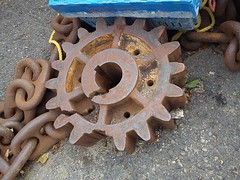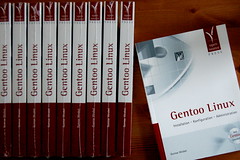
A while back p@rdus promised an early alpha of Horde4 for the Kolab Server for today. Which would have been followed by the release of the Horde4 mail client and the new mobile mail view in the following weeks. But as the Horde developer team has been quick to provide the new mobile view there is no need to delay the delivery of the mail client and the mobile portal any further. So you get a little bit more than promised today but as it is St Nicholas' Day that seems to be just fair.
Of course all the usual warnings apply. This is an extremely early packaging attempt. It is not well prepared and the installation procedure is flawed. There will be no upgrade path. Doing the following on your server has a high chance of damaging the system. Do not even think about installing the packages on a productive machine. In addition the packages just install the mail part of Horde and won't provide a lot of new functionality. And since there are tons of issues the stuff that is new is likely to be broken.
But those of you who have a spare machine with a throw-away Kolab Server 2.2.4 can try to install the packages using the following steps (this assumes your server is up and running):
wget http://files.pardus.de/horde4-20101206.sh chmod u+x horde4-20101206.sh ./horde4-20101206.sh
You should be able to access the Horde4 installation at http://your-domain.com/client4.
Any kind of feedback is of course appreciated and will be used to improve the packages during the months to come. p@rdus will also continue testing and bug fixing of the packages while the final phases of the Horde4 development continue.
Now there are no December items of the roadmap left. So p@rdus will continue the next weeks with highlighting the new elements you can expect to find in Horde4. This should be accompanied with a few bug fix releases. In addition it is planned to provide you with a demo server in case you do not have a spare machine to test the new packages. So stay tuned!



